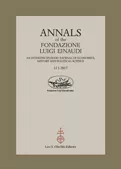Does democracy improve life expectancy? Our study analyzes quantitatively and qualitatively the relationship between democracy, state capacity and life expectancy in Latin America, between 1970 and 2010: by conflating the findings of political scientists, sociologists and public health experts, we outline the ways, both direct and indirect, through which this impact unfolds; discuss how these processes developed or failed to develop, in a series of cases; and control this relationship by introducing additional political, economic and social variables. Our findings suggest that both democracy and state capacity improve health conditions: however, the introduction and initial strengthening of democracy lessen the positive impact of state capacity on life expectancy. These conclusions are of consequence: if stronger democracies provide some of the same functions supplied by state capacity, democracy and state capacity act as substitute for each other. Democratization reduces the need for a stronger state in addressing challenging health objectives, as increasing life expectancy, a favorable perspective for developing countries.



